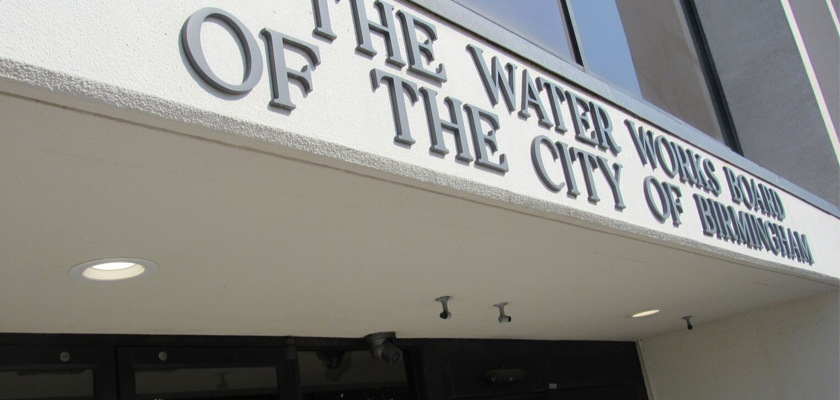The Birmingham Water Works Board (BWWB) voted on Wednesday to raise customer rates, despite a year of turmoil and public controversy surrounding the utility.
The BWWB approved two new budgets for fiscal year (FY) 2023, which amount to a combined total of $197,612,101. The new budgets also call for a 3.9% rate hike, which is less than half of the rate increase that was proposed in September and identical to the rate hike that came with last year's budget.
The BWWB was considering recommendations made by consultants and the board's staff, which were presented to the board's Finance Committee in September.
The board then proposed raising rates by an average of 8.3%, well above last year's increase of 3.9%.
Because the BWWB charges its customers based on a tiered structure, the rate increase could have been as much as 19% for customers using larger amounts of water.
Disgruntled customers held a public hearing in November regarding the proposed rate hike. There, Jefferson County Commissioner Sheila Tyson compared it to theft.
Tyson said the town hall was a success in a statement released by the BWWB.
"We were able to get on-the-spot assistance for some 40-plus customers because of the onsite setup provided by the BWWB," she said.
1819 News reached out to Tyson's office to ask whether or not she approved of the rate increase and received no response.
Water Works general manager Michael Johnson said that the utility's rates are still among the lowest in the country.
"Economic pressures have influenced everything we do as a utility, but our goal is to keep bringing the nation's highest quality water to our customers at the lowest possible price," he said.
Johnson blamed the rising costs of water treatment chemicals, power and labor. He also said the Water Works has to replace miles of galvanized steel and unlined cast iron pipe, which makes up 15% of the utility's system but accounts for 67% of its maintenance activity.
"Another critical factor is demand for consumption, which like the rest of the country, we see continue to slowly decline," Johnson said. "Our 10-year trend for demand is down an average of 2.7%, and we see that continuing at roughly a 2.3% decline in 2023. This means higher revenue requirements must come from a smaller consumption. Unfortunately, it's not just a local issue. It's a national one as well."
Birmingham Water Works has been the focal point of harsh public criticism over the past year due to billing issues that have left some customers with suspiciously hefty water bills.
Earlier this year, thousands of customers reportedly didn't receive bills for months at a time. Later, they received much larger or multiple bills all at once.
The bills were also not based on accurate meter readings but were estimations using previous months' usage. Birmingham Water Works blamed the issues on a lack of meter readers and insufficient staffing.
Alabama Attorney General Steve Marshall asked the BWWB in October to turn over a handful of documents about the proposed rate increase.
1819 News reached out to Marshall's office for an update. Marshall's communications director Mike Lewis said the attorney general has nothing new to add on this matter.
The issues have also drawn the attention of public figures on both sides of the aisle, including Birmingham Mayor Randall Woodfin, a Democrat, and State Sen. Jabo Waggoner (R-Vestavia Hills).
To connect with the author of this story, or to comment, email will.blakely@1819news.com or find him on Twitter and Facebook.
Don't miss out! Subscribe to our newsletter and get our top stories every weekday morning.










